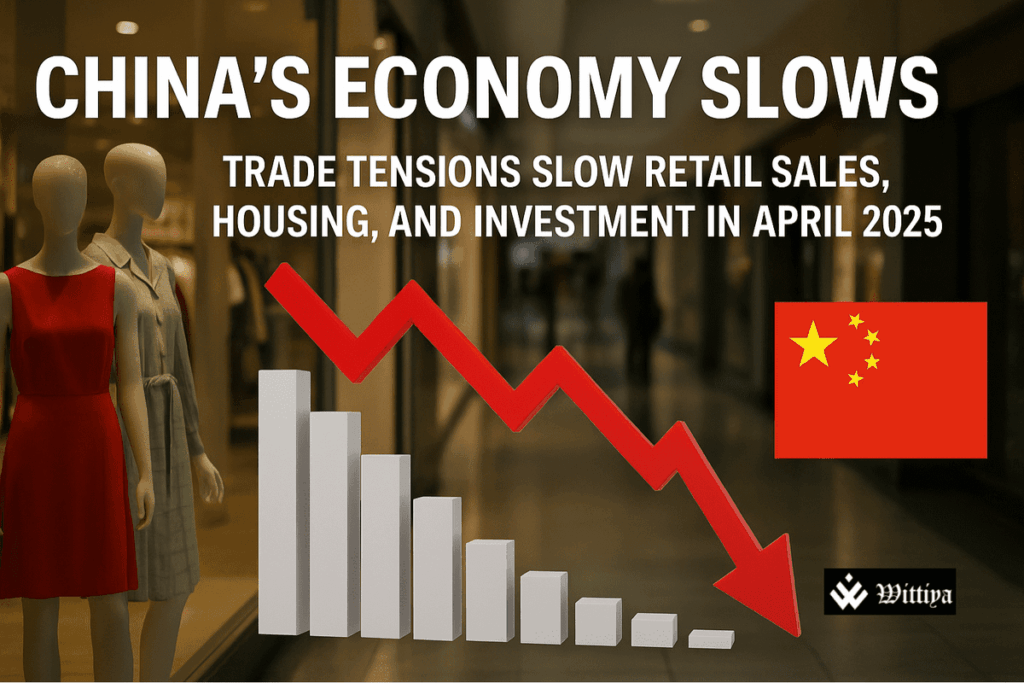China’s economic growth slowed in April as the ongoing trade war impacted retail sales, housing, and investment. Despite a temporary easing of tensions, tariffs and trade barriers continued to weigh on exports. Retail sales grew 5.1%, below expectations, while property investment and industrial production weakened. The government aims to boost domestic demand and stabilize prices amid external uncertainties and deflationary pressures.
China’s economic growth showed signs of slowing in April 2025, as the prolonged trade war with the United States continues to weigh on key sectors such as retail sales, housing, and investment. Despite a temporary truce between the two nations, tariffs and trade barriers have maintained pressure on exports, contributing to softer economic activity and raising concerns over a potential deflationary environment.
Retail sales in China rose by 5.1% year-on-year in April, falling short of economists’ expectations of a 6% increase. Consumer confidence has been dented by ongoing uncertainties, especially in the housing market, which has traditionally been a major source of household wealth and spending power. Property investment also slowed significantly, reflecting the challenges faced by developers and buyers amid tighter credit conditions and regulatory oversight.
Industrial production, another key driver of China’s economy, reported weaker growth as export demand declined due to tariffs and restrictions. The Chinese government is now faced with the challenge of bolstering domestic demand to offset the external headwinds. Officials have emphasized support for job creation and stimulating consumption to revive growth momentum.
One notable concern is the dip in the consumer price index (CPI), which fell by 0.1% in April, signaling deflationary pressures. Falling prices can discourage spending and investment, complicating efforts to sustain economic growth. Beijing is expected to implement measures aimed at stabilizing prices and encouraging spending in the coming months.
Despite these challenges, the Chinese government remains committed to consolidating the economic recovery by focusing on policy support and structural reforms. However, the path forward remains uncertain as external factors such as the ongoing trade war, geopolitical tensions, and global economic volatility continue to pose risks to growth.
In summary, China’s economy in April 2025 faced a slowdown due to trade war impacts that weakened retail sales, housing investments, and industrial production. With deflationary risks rising, government efforts will center on boosting domestic demand and stabilizing the economy amidst persistent external uncertainties.




